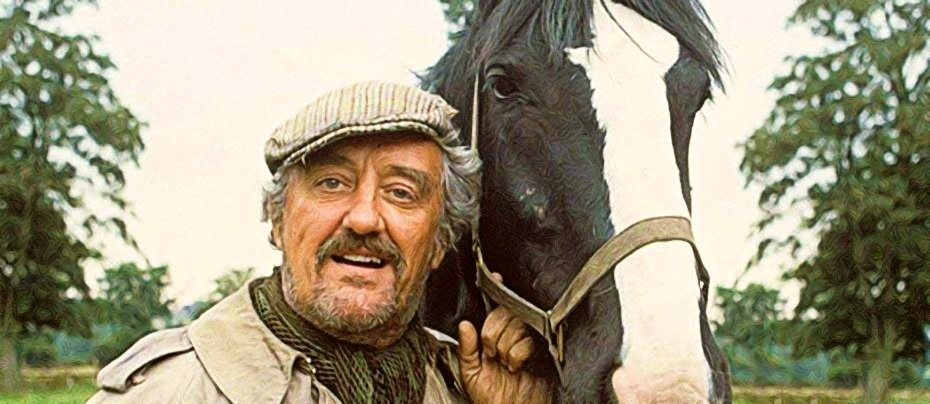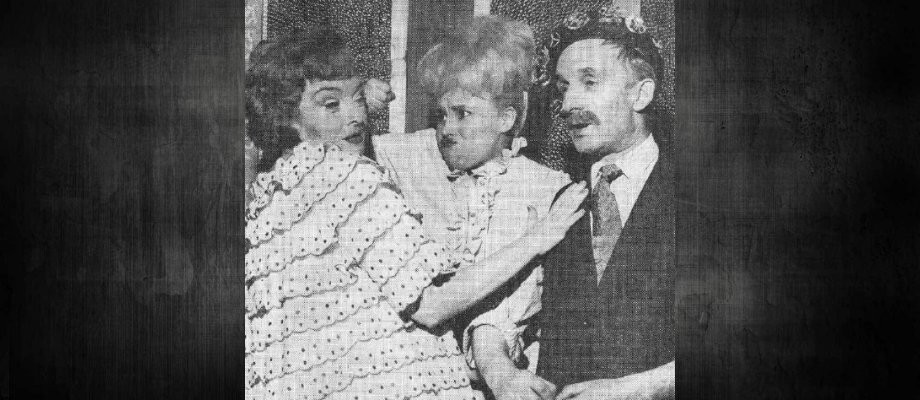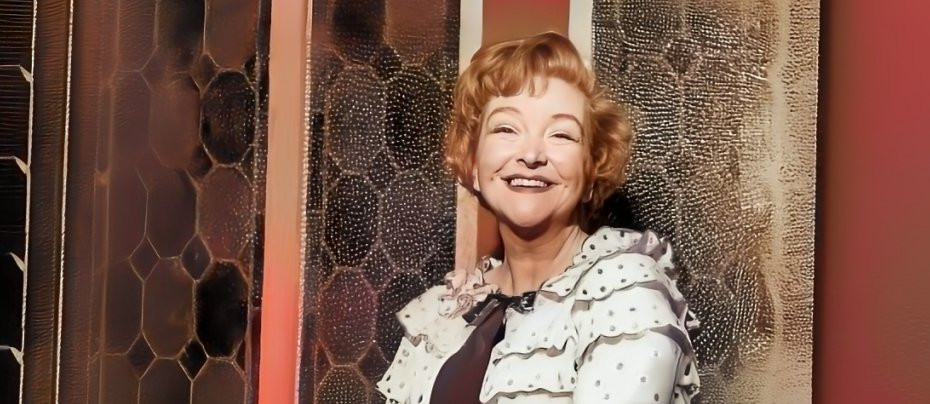
Beryl Reid
‘Another of those unsung heroes who added a touch of fun and unpredictability to everything she turned her hand to’
By Brian Slade
Some actors are very difficult to pigeonhole, with the one categorisation being that you know they will be good. One such gem was as adept at causing a stir in the theatre playing a lesbian in the 1960s as she was playing an eccentric grandmother to Adrian Mole. Whatever she did, she carried a quality that never achieved lasting television stardom of her own but raised the level of the appearances she made in other people’s programmes. That woman was Beryl Reid.
Beryl, born in Hereford on 17 June 1920, recalled that she first decided she wanted to be on stage at just four years old. She would take dance lessons and enter competitions, but when she was 16, she went into the retail business. Not coming from a theatrical background, she instead worked at Kendal Milne in Manchester, owned by the Harrods group. Unimpressed with being forced to take lunch at 11am, she resorted do doing impersonations. It was a brief stay as she successfully auditioned to join the North Regional Follies in Bridlington. Her act was mostly impersonations and dancing, although she would later recount that she would do anything for three pounds a week when moving on to join impresario Jack Gilliam.
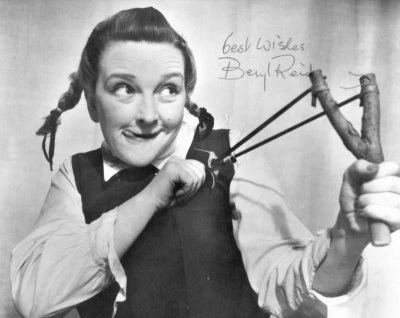
She followed with a challenging turn in between the movies at the Gaumont cinema in Lewisham before taking a dual role at the Astoria in Old Kent Road and Brixton, flitting between the two on a daily basis. Beryl’s big break came on radio when she joined the talented cast of Educating Archie, the show remarkable for having a ventriloquist act on the radio.
On stage, Beryl’s major breakthrough came in 1965 in the form of The Killing of Sister George. Starting at the Bristol Old Vic, the play was about the temperamental star of a radio show who would be killed off. The character Beryl played was a lesbian and for the pre-West End tour, the places they played were less than welcoming, Beryl and her co-stars sometimes struggling to even be served in shops. Once in the West End, the play was more welcomed and Beryl’s performance was enough to lead her into the Broadway version, where she won a Tony for her efforts, before reprising the role in the film version released in 1968, for which she received a Golden Globe nomination.
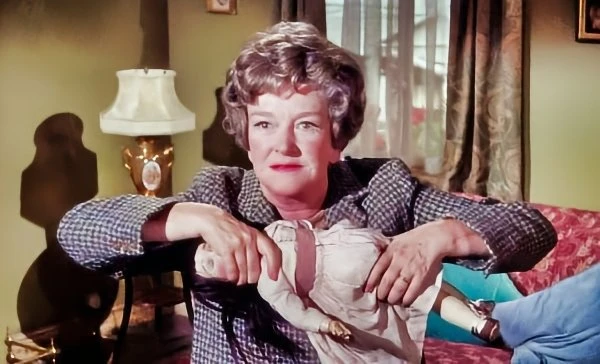
Television success was a little harder to come by. She had appeared with Benny Hill, Norman Wisdom and Frankie Howerd and after her success in The Killing of Sister George, she briefly had her own programme, Beryl Reid Says Good Evening, a revue series that included the talents of Hugh Paddick. A stint in Entertaining Mr Sloane on stage in 1974 for Joe Orton, the film version of which she had already appeared in four years earlier, kept her in the public eye, but her attempt at sitcom success alongside Richard O’Sullivan with Alcock and Gander failed to bring the success of other O’Sullivan vehicles.
Minor parts continued to come Beryl’s way, albeit her progress was hampered by the early onset of osteoporosis, which was the reason given for passing on a number of stage roles. However, she received a career boost when cast as Connie Sachs in Tinker, Tailor, Soldier, Spy. Such was the success of the role, an aging Secret Intelligence Service archivist, it was repeated in 1982’s Smiley’s People, and she earned a BAFTA recognition for best actress.
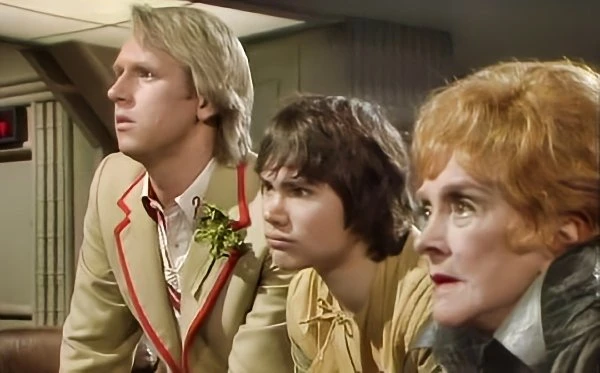
Beryl was also finding a new audience with younger viewers. Appearing in Doctor Who and Worzel Gummidge, she went on to host many episodes of Get Up And Go (also known as Mooncat) as Mooncat befriends her and co-host Stephen Boxer when arriving on Earth. And if that wasn’t enough for her new following, she became Grandma in the classic 80s adaptation of Sue Townsend’s books, The Secret Diary of Adrian Mole Aged 13 ¾ and the follow-up The Growing Pains of Adrian Mole.
For all her renown and the affection the British public had for her, Beryl Reid never really found a niche in television. She had always worked on stage and that was her first love, but as her osteoporosis dictated her health, so she struggled. In the mid-1990s she had a knee operation which was a success, but a subsequent stay for the same operation on the other knee saw her contract pneumonia and she passed away on 14 October 1996 at the age of 76. During her two broken marriages Beryl had resisted having children, believing that the security she had received from her parents was something she wouldn’t be able to give a child given her career choice. She did surround herself with many rescue cats, as many as 13 at one time, and in her will she left her charming cottage on the banks of the Thames to little-known actor Paul Strike as a package with the responsibility to look after her six feline friends.
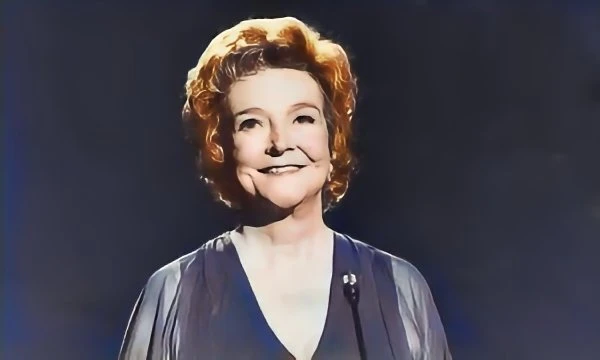
Beryl Reid was another of those unsung heroes who added a touch of fun and unpredictability to everything she turned her hand to. Few people would identify her with any particular role, but those old enough to remember her will doubtless do so almost as a fun aunt. Lending her talents to a multitude of stage shows and a range of comedian’s television efforts, Beryl was described by Ernie Wise as, ‘a sort of cheeky girl, and the public liked her very much.’ And who could argue with that?
Published on April 8th, 2024. Written by Brian Slade for Television Heaven.




